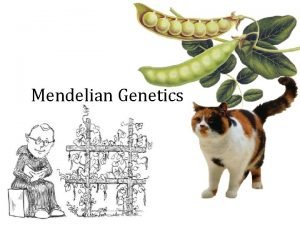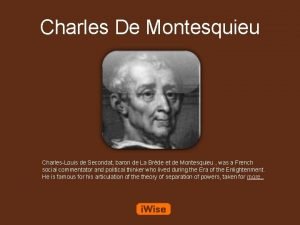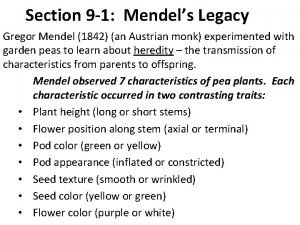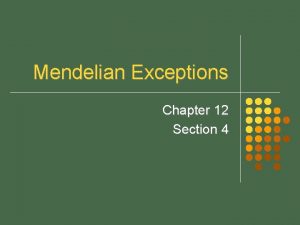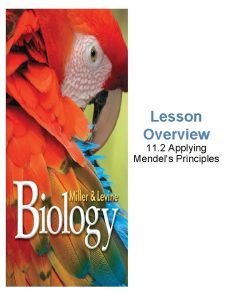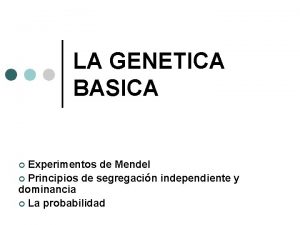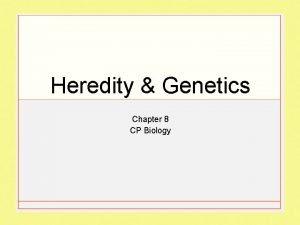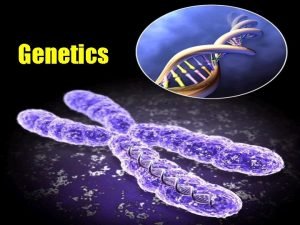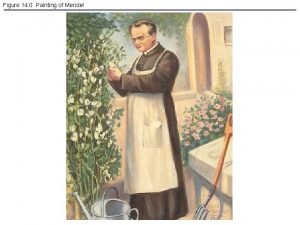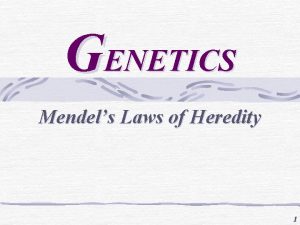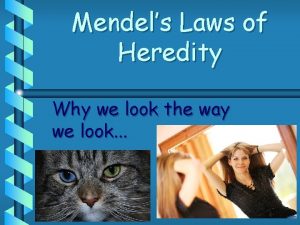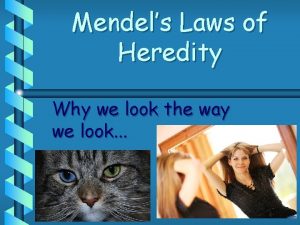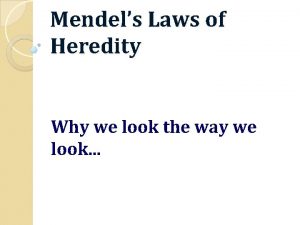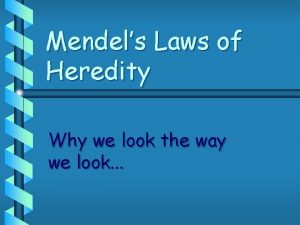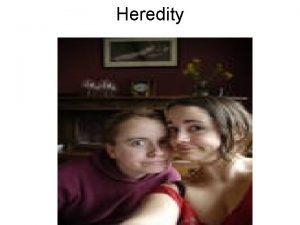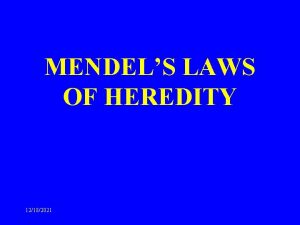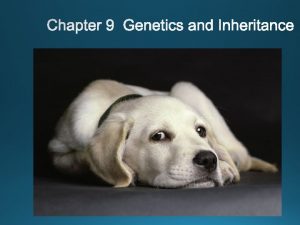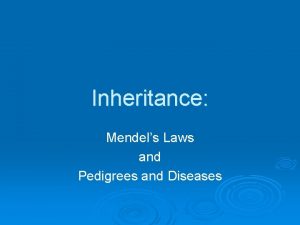Mendels Laws of Heredity Why we look the
















- Slides: 16

Mendel’s Laws of Heredity Why we look the way we look. . .

What is heredity? b. The passing on of characteristics (traits) from parents to offspring b. Genetics is the study of heredity

Mendel used peas. . . b. They reproduce sexually b. They have two distinct, male and female, sex cells called gametes b. Their traits are easy to isolate

Mendel crossed them b. Fertilization - the uniting of male and female gametes b. Cross - combining gametes from parents with different traits

Questions b. What did Mendel cross? b. What are traits? b. What are gametes? b. What is fertilization? b. What is heredity? b. What is genetics?

What Did Mendel Find? b. He discovered different laws and rules that explain factors affecting heredity.

Rule of Unit Factors b. Each organism has two alleles for each trait – Alleles - different forms of the same gene – Genes - located on chromosomes, they control how an organism develops

Rule of Dominance b. The trait that is observed in the offspring is the dominant trait (uppercase) b. The trait that disappears in the offspring is the recessive trait (lowercase)

Law of Segregation b. The two alleles for a trait must separate when gametes are formed b. A parent randomly passes only one allele for each trait to each offspring

Law of Independent Assortment b. The genes for different traits are inherited independently of each other.

Questions. . . b. How many alleles are there for each trait? b. What is an allele? b. How many alleles does a parent pass on to each offspring for each trait

Questions. . . b. What do we call the trait that is observed? b. What case (upper or lower) is it written in? b. What about the one that disappears? b. What case is it written in?

Phenotype & Genotype b. Phenotype - the way an organism looks – red hair or brown hair bgenotype - the gene combination of an organism – AA or Aa or aa

Heterozygous & Homozygous b. Heterozygous - if the two alleles for a trait are different (Aa) b. Homozygous - if the two alleles for a trait are the same (AA or aa)

Dihybrid vs Monohybrid b. Dihybrid Cross - crossing parents who differ in two traits (AAEE with aaee) b. Monohybrid Cross crossing parents who differ in only one trait (AA with aa)

Questions. . . b. What is the phenotype? b. What is the genotype? b. What is homozygous? b. What is heterozygous? b. What is monohybrid crossing?
 Look down to the left
Look down to the left Mendels two laws
Mendels two laws Mendels laws
Mendels laws Mendel experiments in plant hybridization
Mendel experiments in plant hybridization Hey hey bye bye
Hey hey bye bye Useless laws weaken the necessary laws
Useless laws weaken the necessary laws 9-1 mendels legacy
9-1 mendels legacy Gregor mendel plant
Gregor mendel plant Andalusian chicken incomplete dominance
Andalusian chicken incomplete dominance Chapter 12 lesson 2 applying mendel's principles
Chapter 12 lesson 2 applying mendel's principles Leyes de mendel
Leyes de mendel What is codominance in biology
What is codominance in biology Mendel data
Mendel data Mendels law of segregation states that
Mendels law of segregation states that Mendels law
Mendels law Chapter 12 lesson 2 applying mendel's principles
Chapter 12 lesson 2 applying mendel's principles Mendel's first law
Mendel's first law



